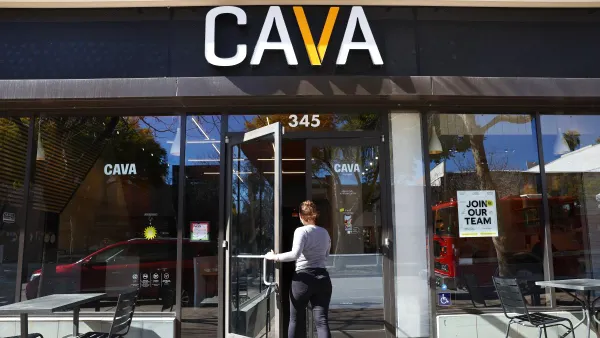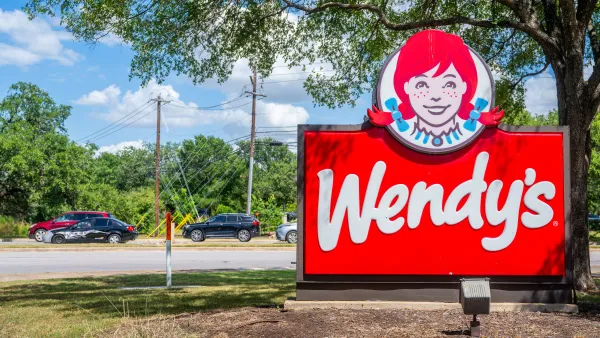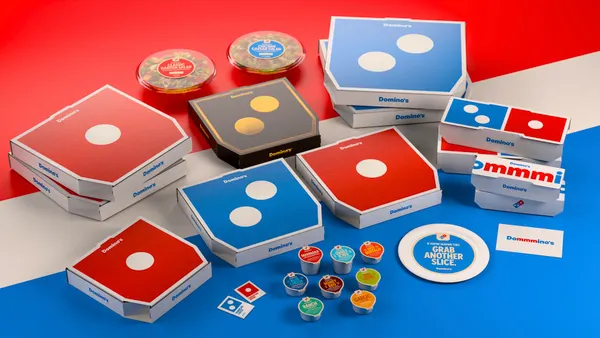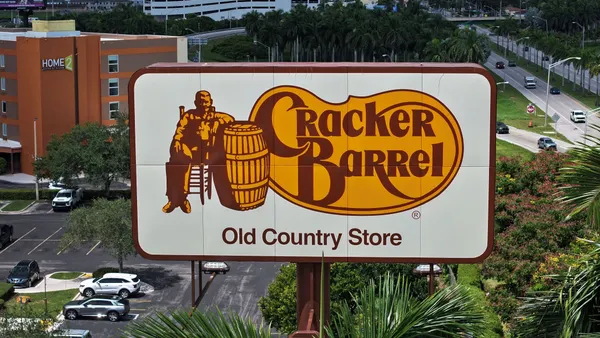Dive Brief:
- A U.K. restaurant that offers plant-based foods made with cannabis opens on December 1, according to The Argus Sun. Tickets have already sold out for opening night at Canna Kitchen, which will use blends of cannabidiol and cannabigerol, the non-psychoactive compounds of the marijuana plant, in its dishes to remain within legal bounds.
- The seasonal British menu, “inspired by world flavours and infused with the healing properties of cannabinoids,” will include food items such as za’atar cauliflower, hemp heart tabbouleh and CBD tahini ice cream created by chef Charlotte Kjaer. Canna Kitchen will be the U.K.'s first cannabis-infused restaurant.
- “We are seeking to change misconceptions around this plant by introducing it to people in a form they may not have encountered before,” owner Sam Evolution told The Argus.
Dive Insight:
The Canna Kitchen’s vegetarian food will incorporate local and organic produce as well as cannabis — a “highly nutritious, versatile and powerful herb,” according to its website. According to the BBC, cannabis oil in the U.K. can legally retain up to 0.2% of Tetrahydrocannabinol, or THC, the psychoactive compound that makes recreational marijuana popular. This restaurant will take advantage of the hype surrounding CBD, as the non-active oil is known.
Just this year, CBD has taken off as an elixir — albeit one unproven by science — for anxiety, stress, inflammation, pain and sleep cycles. It’s entered the self-care world, but it’s also become an ingredient in food and drinks, popping up on ricotta toast, in gumdrops and milkshakes and cocktails.
The New York Times covered the rise of CBD in late October, describing the target audience as “vegan-curious creative professionals” or “trend-conscious consumers” desiring "indulgence — without the indulgence." CBD is flavorless, so as a culinary ingredient, it’s little more than a sprinkle of edible flowers.
An NYU medical professor told The Times that food or drink laced with CBD would be unlikely to have much of an effect. “A CBD coffee may only have five milligrams in it. In order to treat anxiety, we know you need around 300 milligrams,” she said. But that hasn’t stopped U.S. consumers ingrained in the trendy wellness scene from latching on: Gwyneth Paltrow’s site Goop posted a Q&A about CBD cocktails, for example, with the help of a Los Angeles bar.
Based on its mission statement, The Canna Kitchen seems to be banking on similar health and wellness trends in the culinary sphere, focusing on consumers seeking nutritious, plant-based and organic foods. Simultaneously, the owner and chef want to dispel myths about cannabinoids.
More than 30 states, plus D.C. and Puerto Rico, have developed medical marijuana programs, while nine states have legalized recreational programs and dozens more have decriminalized selling and possessing the drug. In those regions, advocacy groups are lobbying to allow more restaurants and bars to let customers use cannabis on the premises.
It’s important to note these laws don’t pertain to cannabinoids, which again, are not psychoactive. A few states have approved various forms of CBD as medicinal treatment, while the FDA approved Epidiolex as an epilepsy treatment. But research remains limited on its medicinal effects. As that body of information grows, so too could CBD-infused food and drink.
The roasted cauliflower at The Canna Kitchen or the trending CBD toast at Chillhouse, a cafe and nail salon in Manhattan, probably doesn’t taste any different than roasted cauliflower or ricotta toast. But it might make people feel better about what they’re eating, and that feel-good vibe appeals to consumers today.











